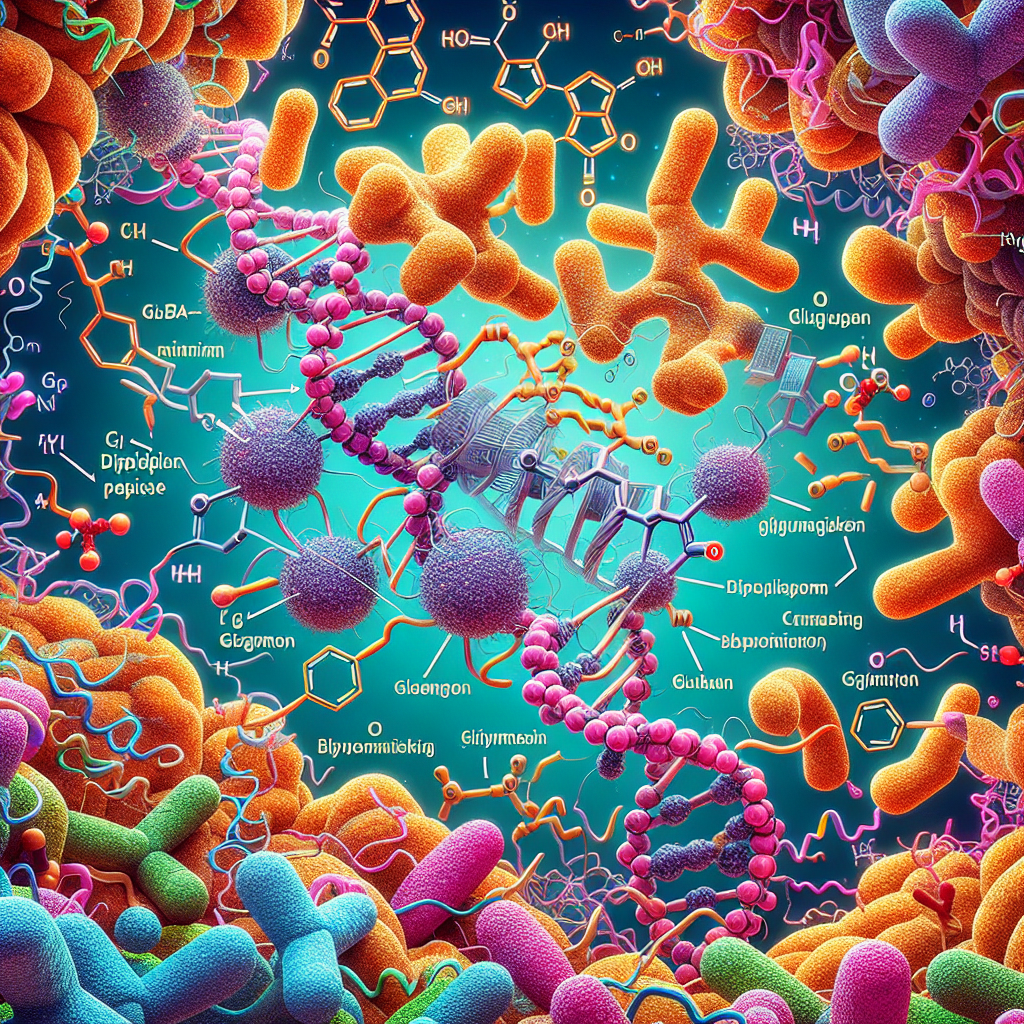What Is The Enzyme That Metabolizes Gluten?
-
Table of Contents
- Understanding the Enzyme That Metabolizes Gluten
- The Role of Proteases in Gluten Metabolism
- Prolyl Endopeptidase: The Key Enzyme for Gluten Digestion
- Research on Enzyme Therapy for Gluten Metabolism
- Challenges in Developing Effective Enzyme Therapies
- Case Studies and Clinical Trials
- Statistics on Gluten-Related Disorders
- Conclusion: The Future of Gluten Metabolism
- Discover ETprotein’s High-Quality Protein Products
Understanding the Enzyme That Metabolizes Gluten

Gluten, a protein found in wheat, barley, and rye, is a common component of many people’s diets. However, for individuals with celiac disease or gluten sensitivity, consuming gluten can lead to serious health issues. Understanding the enzyme responsible for metabolizing gluten is crucial for developing treatments and dietary strategies for those affected by gluten-related disorders. In this article, we will explore the enzyme that breaks down gluten, its significance, and the current research surrounding it.
The Role of Proteases in Gluten Metabolism
Proteases are enzymes that break down proteins into smaller peptides or amino acids. They play a vital role in various biological processes, including digestion. When it comes to gluten metabolism, a specific group of proteases is responsible for breaking down the complex gluten proteins found in certain grains.
Prolyl Endopeptidase: The Key Enzyme for Gluten Digestion
Prolyl endopeptidase (PEP) is an enzyme that has been identified as a potential key player in the breakdown of gluten. PEP is a serine protease that specifically targets proline-rich peptides, which are abundant in gluten proteins. Gluten is notoriously resistant to digestion by human gastrointestinal enzymes due to its high proline content. PEP, however, can cleave these proline-rich peptides, potentially reducing the immunogenicity of gluten peptides in individuals with celiac disease.
Research on Enzyme Therapy for Gluten Metabolism
Recent research has focused on enzyme therapy as a potential treatment for celiac disease and gluten sensitivity. The idea is to supplement the body’s natural enzyme activity with exogenous enzymes that can more effectively break down gluten before it triggers an immune response.
- AN-PEP (Aspergillus Niger Prolyl Endopeptidase): This enzyme, derived from the fungus Aspergillus niger, has shown promise in breaking down gluten in the stomach before it reaches the small intestine, where it can cause damage in celiac patients.
- DPP-IV (Dipeptidyl Peptidase IV): Another enzyme that has been studied for its ability to degrade gluten peptides. However, its effectiveness in vivo is still under investigation.
While these enzymes offer hope, it is important to note that they are not a cure for celiac disease. The only current treatment for celiac disease is a strict gluten-free diet.
Challenges in Developing Effective Enzyme Therapies
Developing enzyme therapies for gluten metabolism is complex due to several factors:
- The need for enzymes to be active in the acidic environment of the stomach.
- The requirement for enzymes to be resistant to digestion by other proteases.
- The necessity for enzymes to target a wide range of gluten peptides to prevent an immune response.
Researchers are working to overcome these challenges by engineering more robust enzymes and exploring various delivery methods to ensure that they reach the small intestine where they are needed.
Case Studies and Clinical Trials
Clinical trials have been conducted to assess the efficacy of enzyme supplements in degrading gluten. One such study published in the “Journal of Pediatric Gastroenterology and Nutrition” showed that AN-PEP was able to degrade gluten in a meal, suggesting its potential as a dietary supplement. However, more extensive clinical trials are needed to confirm its safety and effectiveness for celiac patients.
Statistics on Gluten-Related Disorders
Gluten-related disorders affect a significant portion of the population:
- Approximately 1% of the global population has celiac disease.
- Non-celiac gluten sensitivity is estimated to affect between 0.5% and 13% of people.
These statistics highlight the importance of continued research into enzymes that can metabolize gluten and improve the quality of life for those with gluten-related disorders.
Conclusion: The Future of Gluten Metabolism
The enzyme that metabolizes gluten, prolyl endopeptidase, offers a potential pathway to alleviate the symptoms of gluten-related disorders. While enzyme therapy is not a cure, it represents a promising area of research that could lead to improved treatment options. As our understanding of these enzymes grows, so does the hope for those who are affected by gluten intolerance.
Discover ETprotein’s High-Quality Protein Products
If you’re looking for high-quality protein products, ETprotein offers a range of organic and allergen-free options. Their products, including various plant-based proteins and L-(+)-Ergothioneine, cater to diverse industries and dietary needs. Whether you’re formulating sports nutrition supplements or developing health and wellness products, ETprotein has the ingredients to support your goals.
About ETprotein:
ETprotein, a reputable protein and L-(+)-Ergothioneine (EGT) Chinese factory manufacturer and supplier, is renowned for producing, stocking, exporting, and delivering the highest quality organic bulk vegan proteins and L-(+)-Ergothioneine. They include Organic rice protein, clear rice protein, pea protein, clear pea protein, watermelon seed protein, pumpkin seed protein, sunflower seed protein, mung bean protein, peanut protein, and L-(+)-Ergothioneine EGT Pharmaceutical grade, L-(+)-Ergothioneine EGT food grade, L-(+)-Ergothioneine EGT cosmetic grade, L-(+)-Ergothioneine EGT reference grade and L-(+)-Ergothioneine EGT standard. Their offerings, characterized by a neutral taste, non-GMO, allergen-free attributes, with L-(+)-Ergothioneine purity over 98%, 99%, cater to a diverse range of industries. They serve nutraceutical, pharmaceutical, cosmeceutical, veterinary, as well as food and beverage finished product distributors, traders, and manufacturers across Europe, USA, Canada, Australia, Thailand, Japan, Korea, Brazil, and Chile, among others.
ETprotein specialization includes exporting and delivering tailor-made protein powder and finished nutritional supplements. Their extensive product range covers sectors like Food and Beverage, Sports Nutrition, Weight Management, Dietary Supplements, Health and Wellness Products, and Infant Formula, ensuring comprehensive solutions to meet all your protein needs.
As a trusted company by leading global food and beverage brands and Fortune 500 companies, ETprotein reinforces China’s reputation in the global arena. For more information or to sample their products, please contact them and email sales(at)ETprotein.com today.












